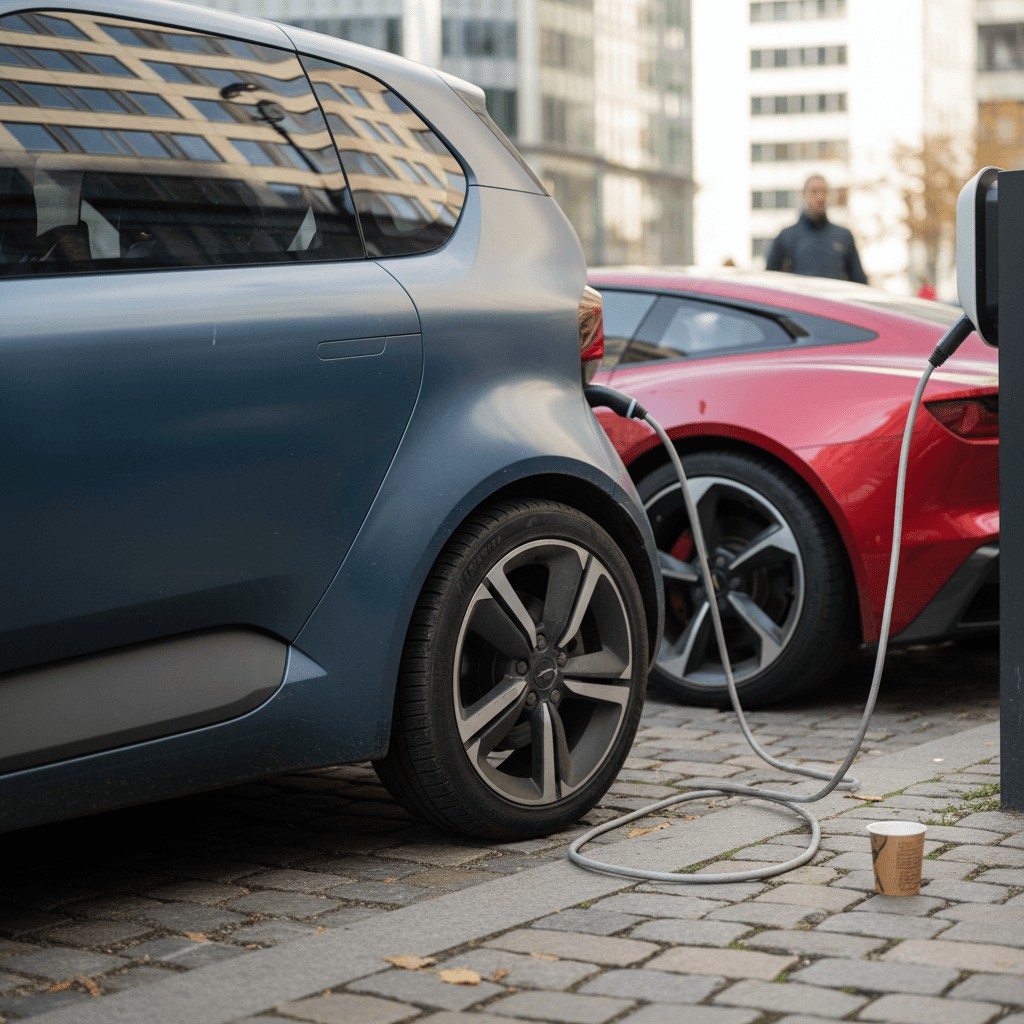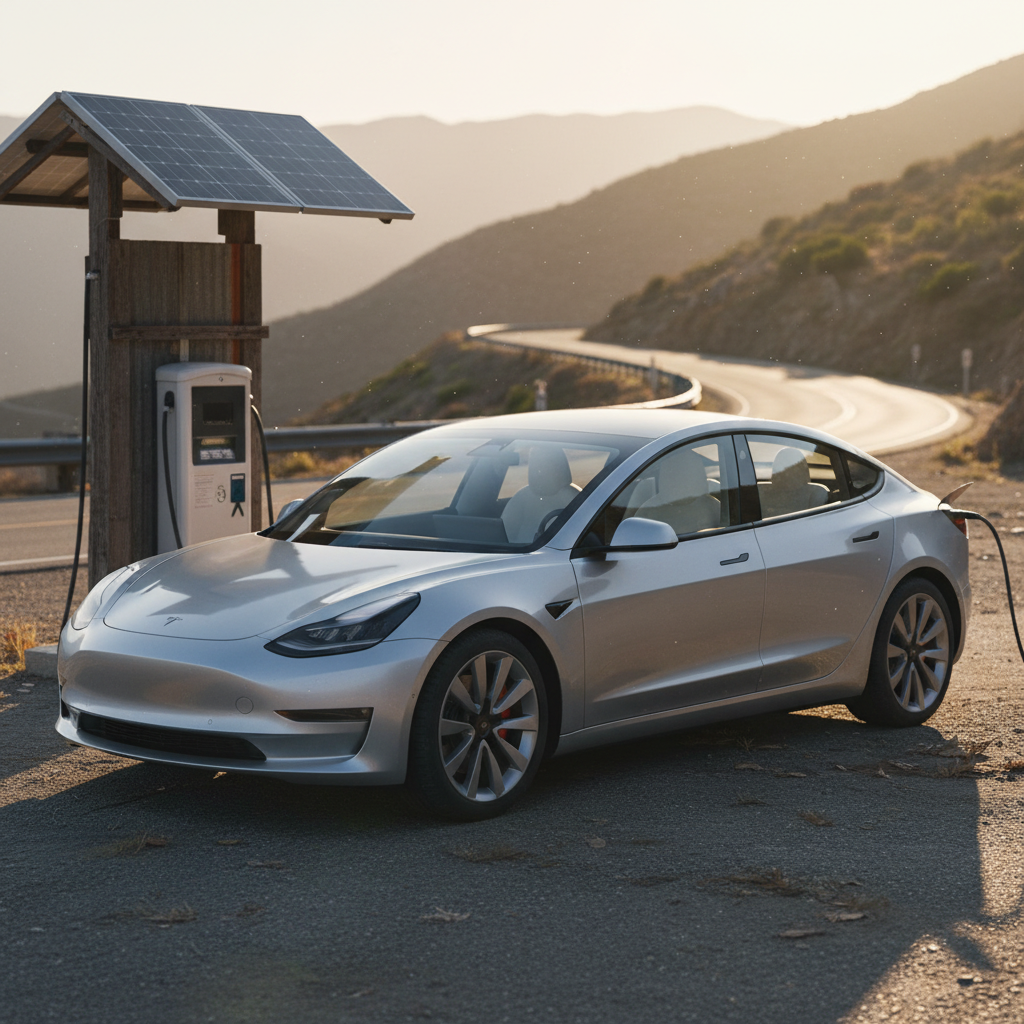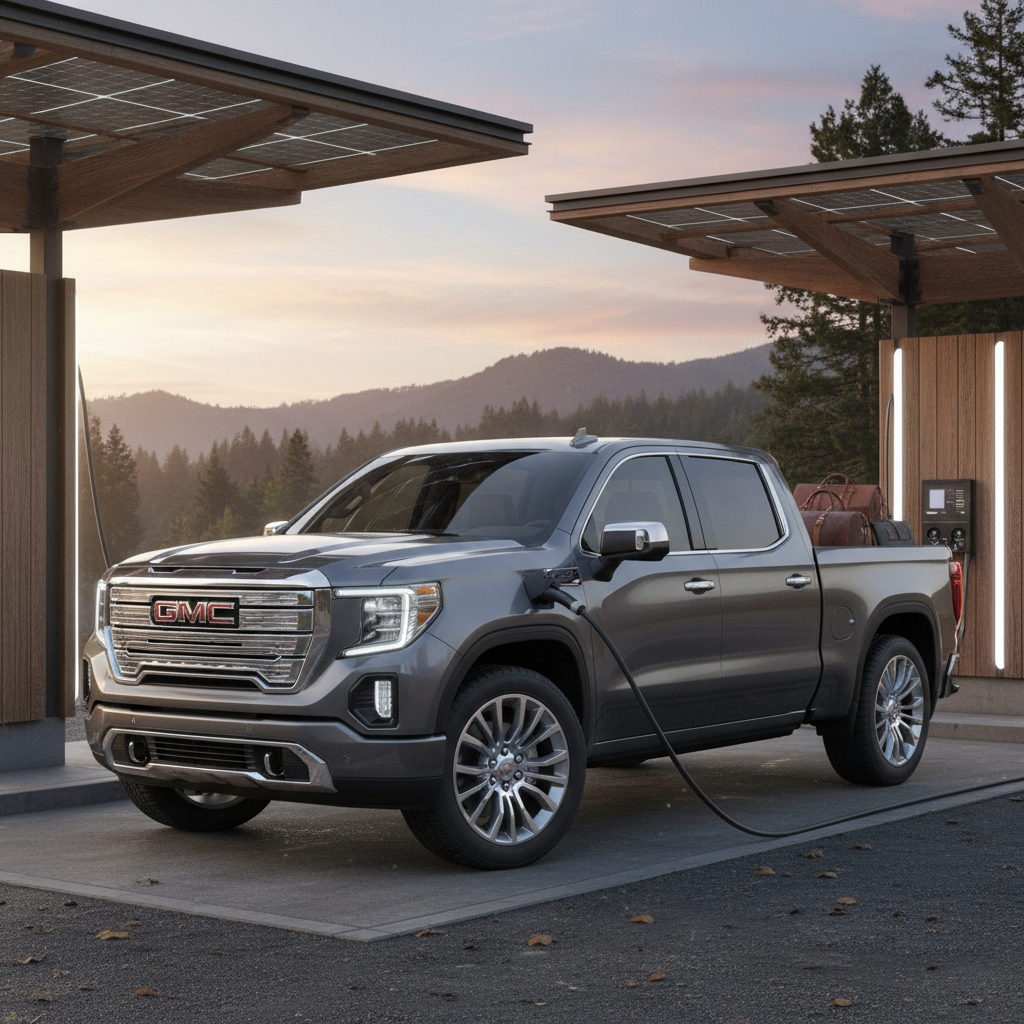If you’ve ever typed “EV repairs near me” into your phone and felt a little nervous about where to go, you’re not alone. Electric vehicles are still new territory for many drivers, and for a lot of repair shops. The good news: with a bit of know‑how, you can find the right place to service your EV without overpaying or becoming someone’s training vehicle.
2025 snapshot
Why EV repairs feel different from gas-car repairs
Fewer moving parts, more electronics
Compared with a gas car, an EV has far fewer mechanical parts to fail, no oil changes, no timing belt, no spark plugs. But it has far more electronics and software. Many issues show up as warning lights, reduced power, or charging problems rather than odd noises or fluid leaks.
High voltage = different safety rules
EV batteries run hundreds of volts. A shop that works on EVs must have insulated tools, protective gear, and high‑voltage lockout procedures. You want technicians who are trained to de‑energize the system before they start poking around.
Why “any mechanic” isn’t always enough
EV repair is small today, but growing fast
Types of EV repair shops near you (and what each does)
Four places that handle EV repairs
Each plays a different role, knowing which you need can save you time and money.
1. Brand dealership service department
Best for:
Warranty work, recalls, complex software issues
- Factory‑trained on your specific brand
- Required for many warranty repairs
- Typically pricier hourly labor rates
2. Independent EV‑friendly repair shop
Best for:
Out‑of‑warranty maintenance and common repairs
- Lower labor rates than dealers
- Good option for brakes, suspension, HVAC, 12‑V systems
- EV capability varies, always ask about training and equipment
3. Mobile EV repair service
Best for:
Convenience repairs at home or work
- Can handle tires, minor electrical, some software issues
- Great if you’re far from a dealer or can’t be without the car
- Not suitable for major high‑voltage or collision damage
4. EV‑certified collision & body shop
Best for:
Accidents, structural damage, and repainting
- OEM certifications are critical for EVs
- Must know how to safely inspect and, if needed, remove the battery
- Insurance companies increasingly prefer certified shops
Quick rule of thumb
How to actually search for “EV repairs near me”
The phrase “EV repairs near me” is a good start, but you’ll get better results by being specific about your vehicle and the problem. Here’s how to turn a vague Google search into a shortlist of qualified shops.
Step‑by‑step: Building a shortlist of EV repair options
1. Start with a specific search
Instead of only searching “EV repairs near me,” add your brand and issue, like “Hyundai Ioniq 5 charging error near me” or “Tesla Model 3 suspension noise repair.” This filters out shops that don’t know your car.
2. Use map filters and reviews wisely
On Google Maps or Apple Maps, zoom to your area and look at star ratings, but read the actual reviews. Search inside reviews for terms like “EV,” “Tesla,” “Bolt,” or “ID.4” to see if people mention your type of car.
3. Check the shop’s website for EV wording
Look for pages that specifically mention <strong>electric or hybrid service</strong>, not just a logo collage. Phrases like “high‑voltage training,” “EV diagnostics,” and “battery thermal system service” are green flags.
4. Call and ask three pointed questions
Ask: (1) How many EVs do you see in a typical week? (2) Do your techs have OEM or third‑party EV certifications? (3) Do you have insulated tools and high‑voltage safety protocols in place?
5. Confirm basic logistics
Before you book, confirm parts availability, whether they can tow or arrange a tow if the car won’t start, and how they’ll keep you updated, text, app, or phone.
What a good EV repair conversation sounds like
Must‑have credentials for an EV repair shop
You don’t need to memorize every acronym in the industry, but a trustworthy shop that comes up when you search for EV repairs near me should be able to show some combination of training, certifications, and equipment. Here’s what to look for.
Credentials and proof points that actually matter
You don’t have to see all of these, but more is better, especially for battery or high‑voltage work.
OEM or brand certifications
Examples include Tesla‑approved body shops, Nissan Leaf, Hyundai/Kia, Ford, or GM EV training. For collision work, OEM structural certification is a big plus.
High‑voltage safety training
Ask whether techs are qualified to power down and lock out EV battery systems. Many shops use training from OEMs or recognized EV academies.
EV‑specific diagnostic tools
Modern EVs need scan tools that can talk to the battery management system (BMS), inverter, and ADAS. Generic OBD scanners alone aren’t enough.
A named EV specialist
It’s a good sign when the shop has a go‑to EV tech or advisor. You want someone who sees these issues routinely, not once every few months.
Clear inspection & estimate process
Look for a written process: diagnostic fee, digital inspection with photos, and a detailed estimate before major work starts.
Recent EV‑specific reviews
Recent reviews mentioning your EV model, or at least EVs and plug‑in hybrids, carry more weight than generic 5‑star comments.
Red flags
What EVs actually need repaired (and typical costs)
Despite headlines about battery failures, day‑to‑day EV repairs near you look a lot like any other car, just with different priorities. Here are the most common categories you’ll run into and what they usually cost in the U.S. as of late 2025.
Common EV services and ballpark price ranges
Real‑world pricing will vary by brand, region, and shop type, but these ranges will at least get you in the right neighborhood.
| Repair type | Typical where | What it involves | Approx. cost range |
|---|---|---|---|
| Tire replacement & alignment | Most shops, tire chains | EV‑rated tires, alignment to prevent rapid wear | $900–$1,600 for a set of 4, installed |
| Brake service | Most shops | Pads/rotors; EVs often go longer due to regen braking | $300–$900 depending on axle and brand |
| Suspension & steering | Dealer or EV‑savvy shop | Control arms, bushings, shocks, steering components | $600–$2,000+ |
| HVAC & heat pump | Dealer or specialized independent | Heat pump diagnostics, refrigerant, sensors, actuators | $400–$2,000+ |
| Onboard charger / charge port | Dealer or EV specialist | Repairing charge port, onboard AC charger, wiring | $800–$3,000+ |
| Battery cooling system | Dealer or high‑end independent | Coolant leaks, pumps, valves, thermal sensors | $500–$2,500+ |
| High‑voltage battery module repair | Specialized EV/battery shop | Module replacement, BMS programming, pack reseal | $3,000–$8,000+ |
| Complete battery pack replacement | Dealer or specialized battery facility | Pack swap, programming, logistics | $8,000–$20,000+ (model‑dependent) |
Always ask for a written estimate; software updates or recalls may reduce or eliminate some costs.
Most EV repairs aren’t catastrophic

Dealer vs independent shop vs mobile EV repair
Dealer service department
- Best for warranty, recalls, software, complex HV issues
- Higher labor rate, but access to OEM tools and updates
- May be the only option for brand‑new or niche EVs
Independent EV‑capable shop
- Competitive pricing, especially for out‑of‑warranty work
- Good for wear items and many drivability concerns
- Quality varies, check training and reviews carefully
Mobile EV repair
- Convenient for tires, 12‑V issues, some software fixes
- Great if you’re far from a dealer or busy
- Limited for high‑voltage or structural work
Mix and match strategically
Collision and body repair for EVs
A low‑speed fender‑bender is one thing; a hard hit near the battery pack or underbody is another. When you’re searching for EV collision repairs near me, you’re looking at a different set of requirements than for mechanical work.

Key questions for an EV collision repair shop
Ask these before your insurer sends the car anywhere.
Are you OEM‑certified for my brand?
Collision certification from your EV’s manufacturer signals the shop has the right tools, repair procedures, and training.
How do you handle battery safety?
They should describe procedures for high‑voltage inspection, temperature monitoring after a crash, and when they remove or quarantine a pack.
Will you provide a documented repair plan?
You want a written blueprint: structural parts, paint processes, calibration steps (like ADAS cameras and radar), and post‑repair battery checks.
Who calibrates ADAS systems?
Many EVs need camera and radar recalibration after collision work. Ask if it’s done in‑house or by a trusted sublet partner.
Don’t let the nearest shop learn on your car
Avoiding common EV repair mistakes
Five mistakes EV owners make when searching for repairs
1. Treating all warning lights as equal
A tire‑pressure light and a high‑voltage system fault are not in the same league. If the message involves “battery,” “HV,” or “limited power,” stop driving and call for a tow to an EV‑capable shop.
2. Ignoring tires and alignment
Tires are the most common EV service item, largely because EVs are heavier and deliver instant torque. Skipping alignments or using non‑EV‑rated tires can chew through rubber quickly and harm range.
3. Approving expensive work without a second opinion
If someone recommends a massive repair, like a full battery pack replacement, ask for a detailed report and consider a second opinion from a shop that specializes in your brand or in battery repair.
4. Assuming the cheapest shop is fine for everything
Price matters, but on complex EV systems, the cheapest option can cost more in the long run if misdiagnosis leads to repeat visits or non‑OEM shortcuts.
5. Skipping documentation
Keep digital copies of every estimate, invoice, and diagnostic report. They’re valuable for warranty claims, and when you eventually sell or trade your EV.
Good repair records pay you back later
FAQ: EV repairs near me
Frequently asked questions about EV repairs
How Recharged helps you avoid ugly EV repair surprises
Finding good EV repairs near you is much easier when you start with the right car. That’s why every used EV on Recharged comes with a Recharged Score Report that includes verified battery health, fair‑market pricing, and a detailed look at the vehicle’s history and condition.
Buying smarter means fewer repair headaches later
How Recharged fits into your EV ownership journey.
Verified battery health
The high‑voltage battery is the most expensive component in your EV. Recharged’s diagnostics give you objective data on its condition before you buy.
Transparent pricing & history
Recharged uses market data to price vehicles fairly and surfaces key history details, so you aren’t surprised by past collision or title issues later.
EV‑specialist support
From questions about warranty coverage to what repairs to expect for a specific model, Recharged’s EV specialists help you make an informed decision.
You don’t need to be an engineer, or a gambler, to own an electric car. When you understand how to vet shops, what common EV repairs look like, and how battery health affects your risk, it’s much easier to type “EV repairs near me,” choose the right option, and feel confident about the work being done. Start with a solid vehicle, keep good records, and build a relationship with an EV‑savvy shop, and your electric ownership experience can be as smooth, and predictable, as your car feels on the road.



